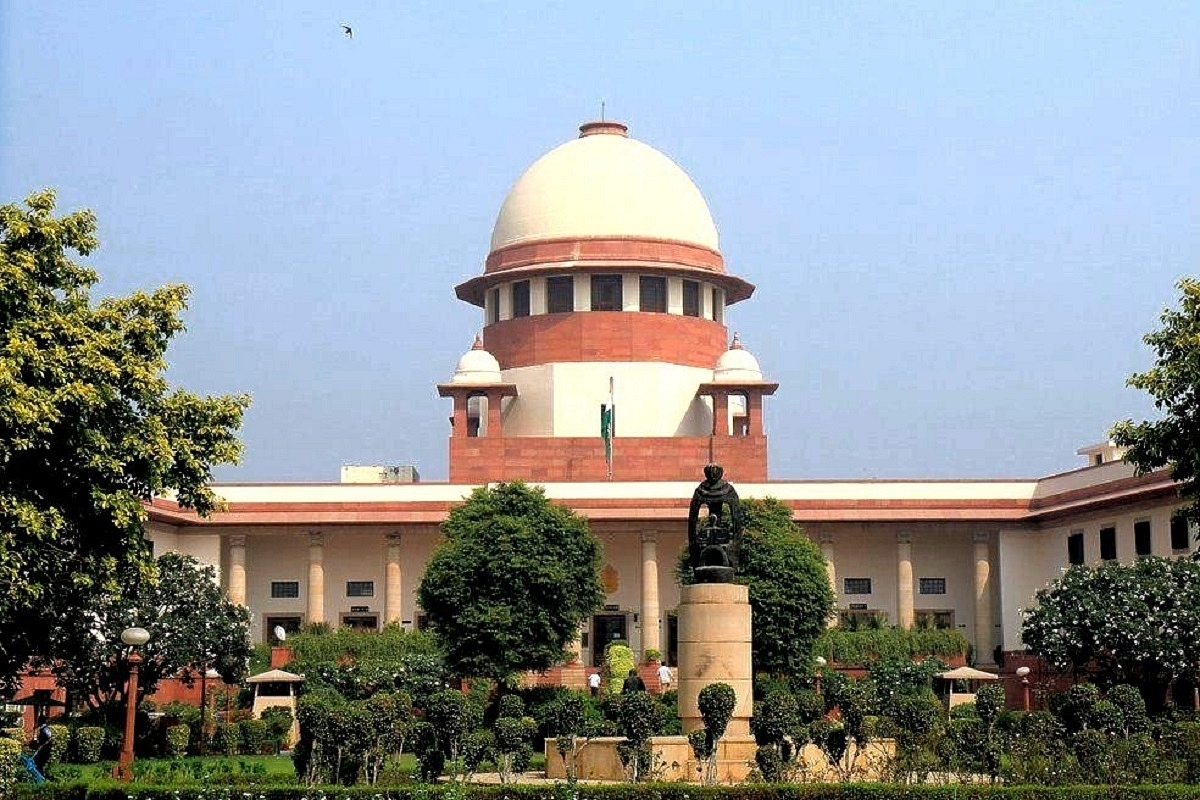News Brief
Citizenship And Immigration Policy Under Parliament Domain, Cannot Be Questioned By PILs: Centre In SC On CAA Matter

The Supreme Court of India. Source: Twitter
The central government has submitted before the Supreme Court that the Citizenship Amendment Act 2019 (CAA) does not affect the legal, democratic or secular rights of any of the Indian citizens.
The affidavit has been filed in response to the batch of petitions filed before the Supreme Court challenging the CAA.
The affidavit in the reply settled by the Solicitor General Tushar Mehta and drafted by Union Panel Counsel Kanu Agrawal maintained that the existing regime for obtaining citizenship of India by foreigners of any country, continues to be untouched by the CAA and remains the same.
It stated that legal migration on the basis of valid documents and visa, continues to be permissible from all countries including the three nations specified in the CAA.
Further, it was stated that, “The CAA is merely a limited legislative measure, circumscribed in its application which does not affect the existing legal rights or regime concerning citizenship (falling outside the purview of specialized measure) in any manner”.
Questioning the locus of the petitioners, the centre maintained that matters concerning immigration policy, citizenship and exclusion of immigrants lies within the domain of the parliament and cannot be questioned by way of public interest litigation petitions.
The legislative policies in this regard are designedly entrusted exclusively to the elected representatives. The Supreme Court has itself provided wide latitude to the parliament to legislate on subjects concerning foreign policy, citizenship, economic policy etc.
The affidavit further reads, "It is submitted that the CAA is a specific amendment which seeks to tackle a specific problem prevalent in the specified countries i.e. persecution on the ground of religion in light of the undisputable theocratic constitutional position in the specified countries, the systematic functioning of such States and the perception of fear that may be prevalent amongst minorities as per the de facto situation in the said countries. The Parliament, after taking cognizance of the said issues over the course of the past seven decades and having taken into consideration the acknowledged class of minorities in three specific countries, has enacted the present amendment".
With respect to the aspect of Article 14 violation, it has been submitted that such classification of regions within the country, wherein parts are included and certain parts are not, is not a novel form of classification and the same exists in numerous legislations in the country.
Additionally, the affidavit underlined that, "The tribal areas of Assam and Tripura, which are the most vulnerable in terms of scant indigenous population, are falling within the excluded areas of the CAA. It is submitted that the said portions of Assam and Tripura are classified at par with the entire states of Mizoram, Manipur and Arunachal Pradesh and almost entire states of Nagaland & Meghalaya being equally placed. It is submitted that with regard to the avowed object of the exclusion of certain areas from the CAA in order to protect the ethnic/linguistic rights and to protect them from getting swamped by large scale influx of migrants, the inclusion of non-tribal areas of Assam and Tripura in the CAA is not discriminatory as the said areas are not as thinly populated as other excluded areas and would not face the same consequences in case of immigration of persons,".
The matter will be heard today by a bench headed by the Chief Justice of India Uday Umesh Lalit.
Introducing ElectionsHQ + 50 Ground Reports Project
The 2024 elections might seem easy to guess, but there are some important questions that shouldn't be missed.
Do freebies still sway voters? Do people prioritise infrastructure when voting? How will Punjab vote?
The answers to these questions provide great insights into where we, as a country, are headed in the years to come.
Swarajya is starting a project with an aim to do 50 solid ground stories and a smart commentary service on WhatsApp, a one-of-a-kind. We'd love your support during this election season.
Click below to contribute.
Latest